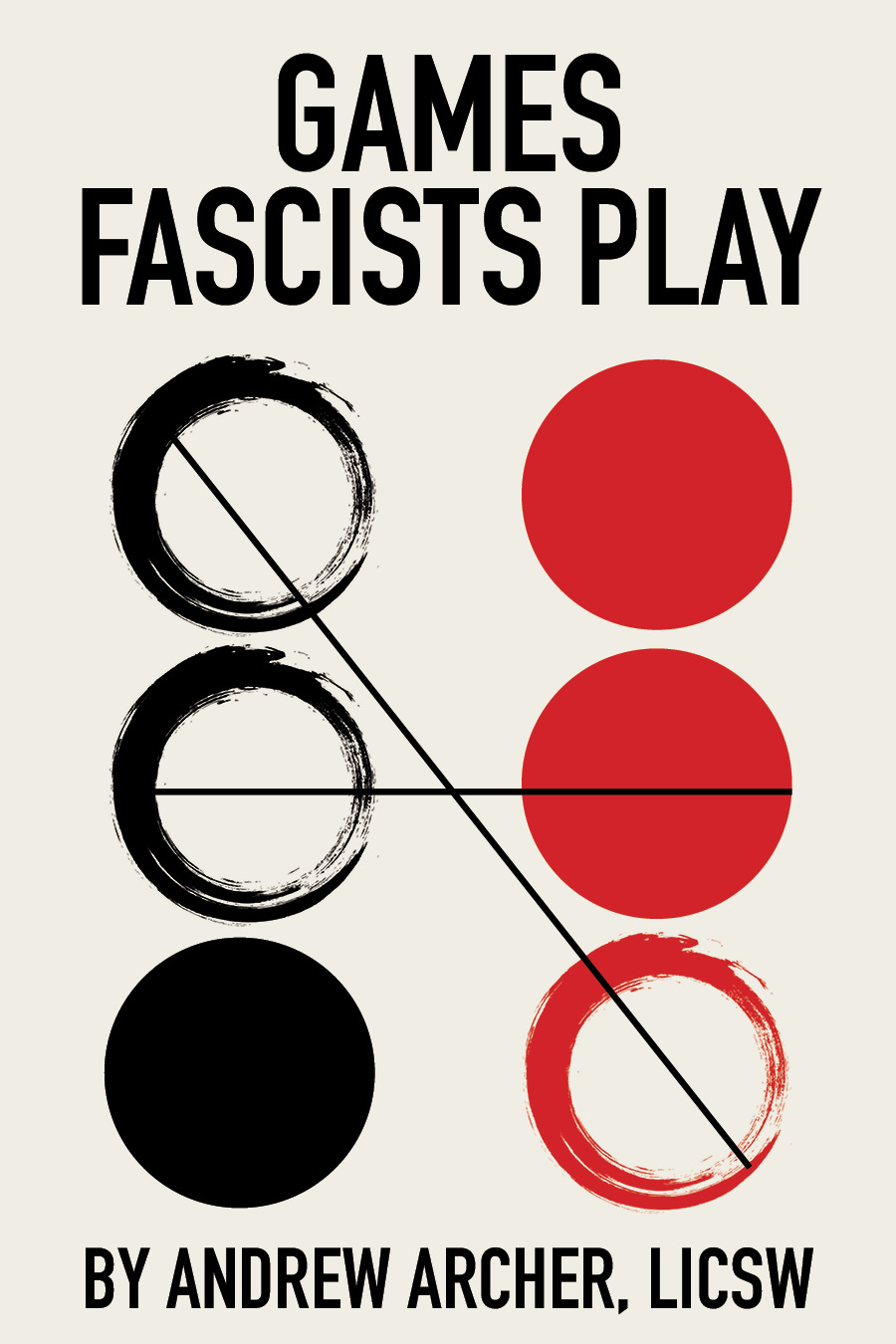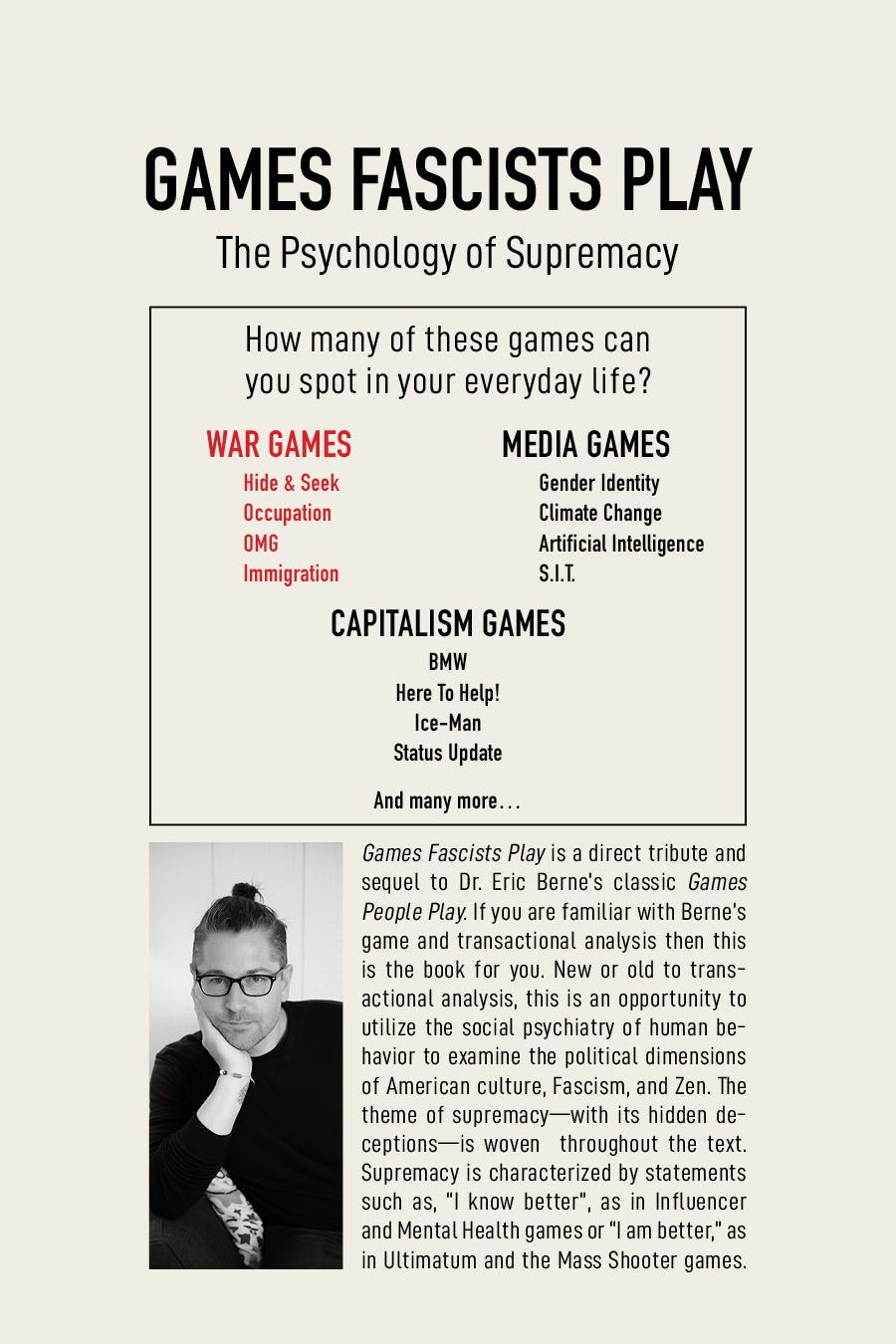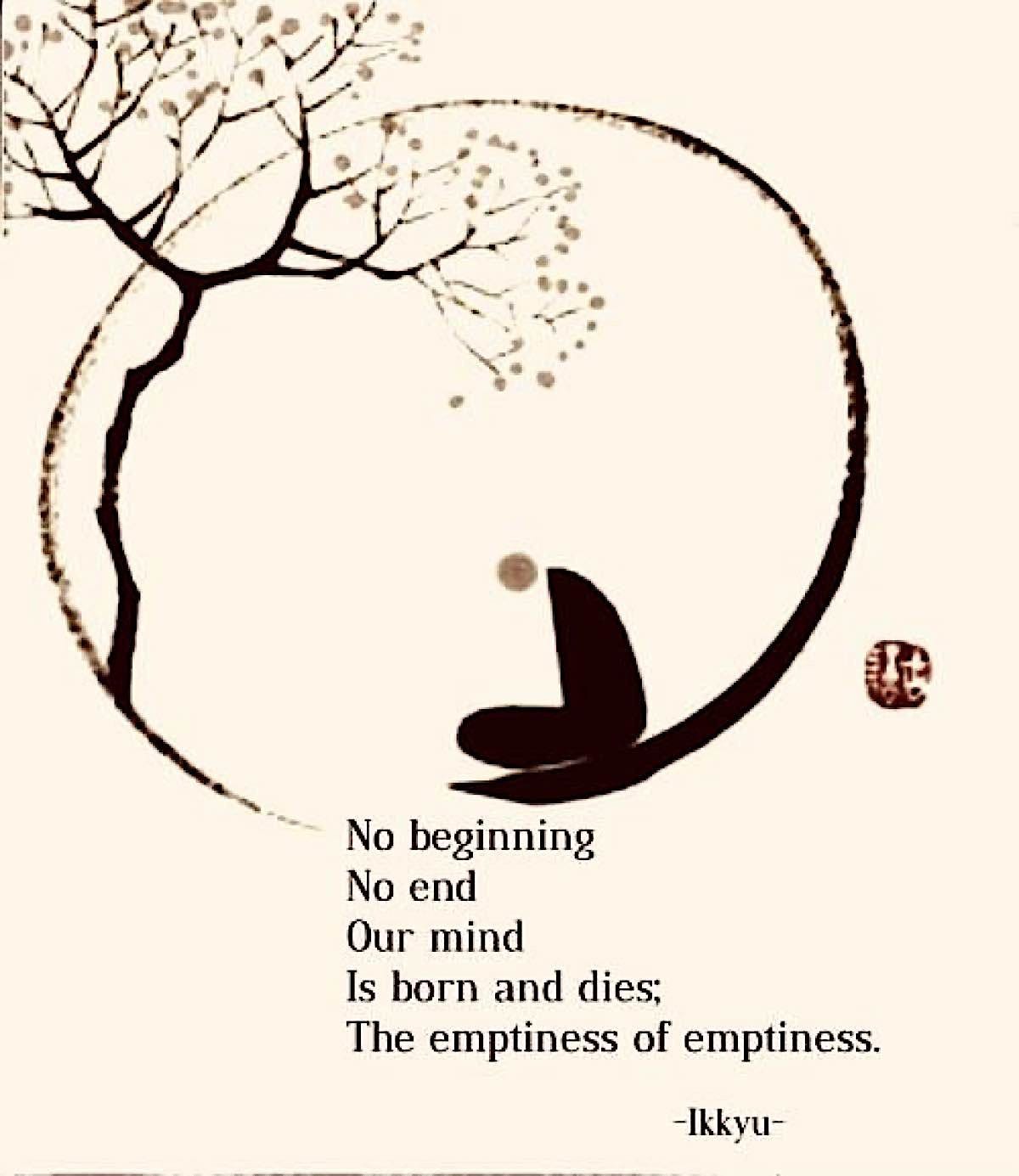Emigration is from the manuscript section on “War games.” The game is meant to be read in concert with the Immigration game.
**In game analysis, “White” opens with a “con,” which is the first move. This invitation is made by the initiator or agent, i.e., White. The “gimmick” is the weakness in “Black,” which leads Black to respond to White’s con.**
EMIGRATION
“Want Out” was common in the late 1930’s among recently arrived immigrants from Germany who became psychotic. They would improve and beg for release from the hospital; but as the day of liberation approached, their psychotic manifestations would recur. 1
-Eric Berne, Games People Play
Set up: I Want Out so I can make a major move to improve my life!
Clinical explanation: The word “emigration” means to go beyond or out of an accustomed place. While emigration represents people leaving a country, immigration is the process of a country receiving people who left another country. To emigrate in an interpersonal sense is to relocate away from the safe and comfortable home to risk an emotional quest for self-improvement and triumph, e.g., increasing one’s probability of better employment or intimate relationship or improving one’s quality of life. The game Emigration involves the expressed prospect of departing one’s homeland and settling life elsewhere, e.g., divorce, relocation, career change, etc.
In Emigration, White is not held back by their significant other. In fact, Black may encourage White to mobilize their energy to find a new job, move across the country, etc. Black is not domineering and controlling; they are encouraging and supportive. On the psychological level, White’s illusory Emigration is an opportunity to fantasize about social and sexual exploration.
Original games: Emigration is similar (counterphobic) and antithetical (positive prospect) to the Immigration game. The political variant of Immigration is referred to as “If It Weren’t For Them.” The game is meant to seed fear and despair. Immigration is based on Eric Berne’s “If It Weren’t For You” (IWFY) marital game. Mr. White is the domineering husband to the submissive Mrs. White. The IWFY game is counterphobic like Emigration.
In the original game, the con for Mrs. White is that Mr. White is controlling them, which allows Mrs. White to avoid their fears. Mr. White’s controlling nature is to avoid fears of desertion. In the Emigration game, White is not being controlled by a domineering Black. Black does not fear desertion and instead encourages it. Black acts as a supportive to White’s pleas for a form of relocation. It is White who is dominated by her own inner critic that discounts what the Child part of her wants to do.
Berne (1964) wrote a thesis, antithesis, and explained games that were relatives to “How Do You Get Out of Here?” He wrote how prisoners or state hospital patients will play this game that he shortened to “Want Out.” An inmate or patient who does want to leave the institution will comply with rules and regulations (good behavior). However, if White is playing this game, the Child part of them does not want out. White will simulate good behavior, but “at the critical point” they will sabotage their own progress toward relocation. White goes through the “prescribed motions,” but the Child “is actually frightened at the prospect of venturing into the uncertain world.” So, it is this part of the personality structure that “takes over and spoils the effect.” 2 With Emigration, it is the child part of the personality that Wants Out and the discipling internal parental energy who keeps the person immobilized.
Thesis: The thesis of Emigration is one of interpersonal re-location from a dictator (employer or husband). For example, prior to the election of George Bush II in the fall of 2000, individuals said, “If Bush wins I’m moving to Canada.” They didn’t. Now, university professors are moving to Canada based on the impending threat of American fascism.
Emigration identifies the conflict the modern human animal faces: we are willing to sit and stay in place despite the history of nomadic lifestyles and social mobility. One psychotherapy version of Emigration is when White plans to end an intimate relationship (“I’m getting a divorce.”) or conveys the promise to establish a new intimate relationship. White claims that they cannot leave the current storm, war, hell, they are living in. This discounting of themselves occurs for both internal (health, anxiety, etc.) and external (finances, children, etc.) reasons.
For example, White says to Dr. Black, “I think I’m gonna look for a new job!” Dr. Black replies, “When?” and White enthusiastically says “Tomorrow!” However, this is followed immediately by a discount by the parental aspect of their personality: “We’ll see. Maybe I just need a vacation.” In contrast with the gloating of self-torture for social recognition (See how-hard I’ve Tried), White will often hide their Emigration plan inside their head (the desire for a separation or filing for divorce). This is the concealed part of the game. Instead, White triangulates Dr. Black as well as other friends and family into the game by explaining their Emigration status. The social advantage is that White can structure their time with others by playing the divorce or breakup version of Ain’t It Awful (see Media games).
Aim: With Emigration, it is the hegemonic nature of the nuclear family, bolstered by social media technologies, that is the invisible control over White’s desire for autonomy. For example, the twentysomething who is back living in their parent’s home does not play, “If It Weren’t For Them,” i.e., their parents. One or both parents usually encourage White to go beyond the accustomed place.
Instead, White bemoans their conditions to Dr. Black and fantasizes about a major Emigration. White utilizes the Connection role of corporate online platforms to “search” (from their computer) for a new permanent settlement. One astute patient described the aim of Emigration as, “Preemptive protection against a potential disappointment.” The con of Emigration is that a major mobilization for overall improvement or release from a war-torn area is imminent, when in fact the energy is a “false flag” (January 6th mob), it has a shadowy corporate supported aspect to it (Black Lives Matter, DEI), or the individual internally discounts themselves (divorce, career change).
Antithesis: The Emigration game is based on a desire to move away from something unpleasurable. This is because we are convinced that our essence (ego) is a “thing” to be attached to. The illusion is that our being is that of a contingency across a separated time. Everything is co-emergent and separation is conceptual trickery. Put another way, Descartes and Newton were fucking idiots. The irony is that so-called humans have been trained that the default way of being is to sit on the spot. 3 Desertion is the antithesis to the delusion of the Emigration game, i.e., a far-off better “place” to go to. A place of no place is very close to Zen.
In Quit Everything, Franco Berardi (2024) reimagines the current crisis of clinical depression in the West. Instead of depression he speaks of “desertion” as an ethical and rational response. Decades prior, Howard Zinn articulated our collective weapon that governments are unable to suppress: our powerlessness. Berardi offers desertion (non-action) as a combative to the major issues of our time, e.g., war, economic expansionism, the climate crisis, etc. For example, Berardi’s view of the Russian-Ukraine war is seen as a battle by Hitler vs. Hitler.
Because capitalism requires the mobilization of social energies, his imperative is to withhold our energy (and suspend our sense of identity) from these systems of death.
As a specific example, the “mediasphere” has taken full command of our psychology. Therefore, the “psychosphere” is eroded by the media, which results in an incapacity “for affective and bodily interaction.” 4 In contrast with desertion, “social distancing” was the active avoidance within the horizon of the political and economic system. Desertion implies the withdrawal of cognitive and behavioral energies, including the investment in desire to actualize a new horizon. Desertion is an active withdrawal,
…from any collaboration, from any complicity, with a murderous system, and which simultaneously implies inhabiting the world in a way that is compatible with the exhaustion we are all faced with. 5
From a Zen perspective, there is no “I” separate from “the world.” Therefore, there is no substantive “I” (ego) who will emigrate, migrate, immigrate, or desert. Every living being (buddha nature) is the Way of birth-and-death. What is the appropriate response?
p. 137, Berne, E. (1964). Games people play: The psychology of human relationships. New York, NY: Grove Press, Inc.
p. 137, Berne, E. (1964). Games people play: The psychology of human relationships. New York, NY: Grove Press, Inc.
p. 56, Reich, W. (1953). The murder of Christ: The emotional plague of mankind. The Noonday Press a division of Farrar, Straus, Giroux: New York. (orig. written in 1951)
“SITTING on the spot is the most logical consequence of man’s immobilization. Everybody prepares himself in early life to remain sitting, comfortably if possible.”
p. 71, Berardi, F. (2024). Quit everything: Interpreting depression. London: Repeater.
p. 7, Berardi, F. (2024). Quit everything: Interpreting depression. London: Repeater.













